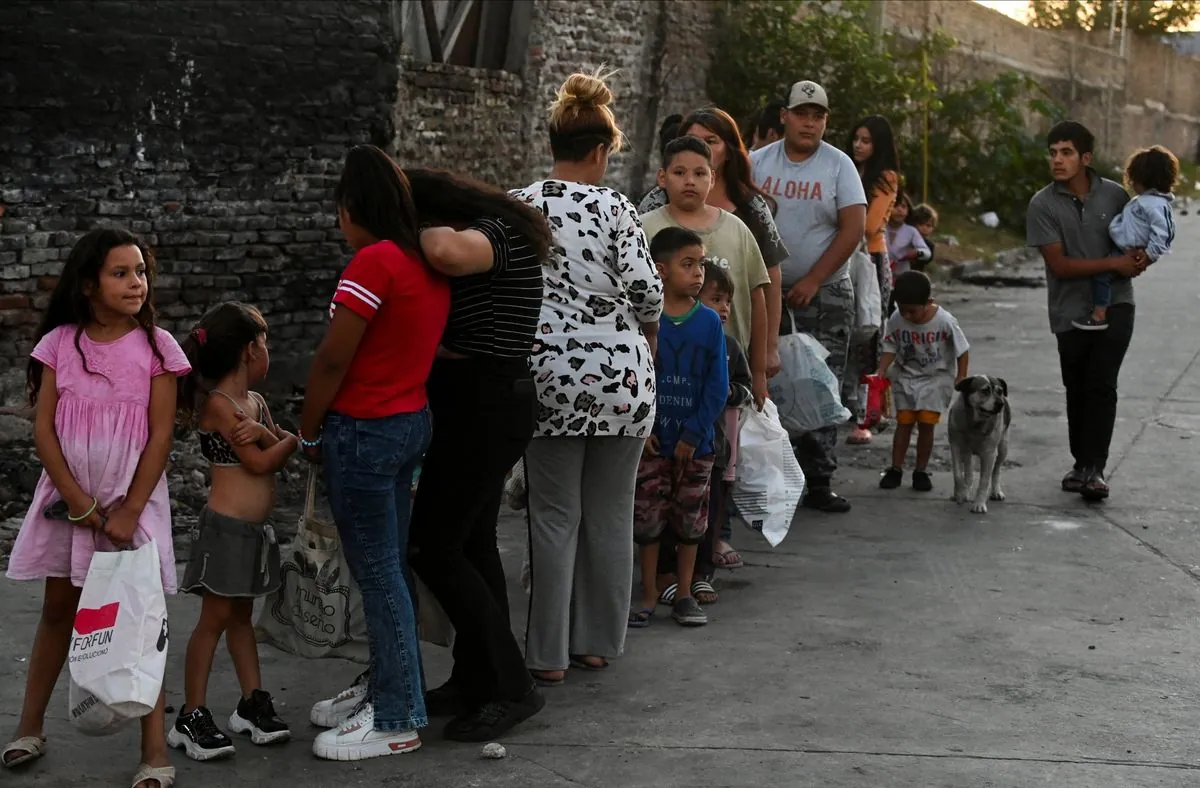Argentina's economic landscape has taken a significant turn, with official data revealing a stark increase in poverty rates. In the first half of 2024, the poverty rate in the South American nation climbed to nearly 53%, marking a substantial rise from 41.7% at the end of 2023. This surge underscores the immediate impact of President Javier Milei's stringent austerity measures, implemented to address the country's fiscal challenges.
The current poverty rate is more than double the 26% recorded seven years ago, highlighting the severity of Argentina's economic struggles. This trend reflects the country's history of economic volatility, which has included multiple sovereign debt defaults and periods of hyperinflation, particularly in the late 1980s.
The effects of these economic policies are felt acutely by citizens like Irma Casal, a 53-year-old resident of Buenos Aires. Despite working three jobs as a recycler, cardboard collector, and bricklayer, Casal struggles to make ends meet. Her situation exemplifies the challenges faced by many Argentinians in the current economic climate.
Argentina's economy is currently in a recession, with inflation remaining in triple digits. However, there are indications that the situation may be stabilizing. The country's rich natural resources, including significant oil and gas reserves, and its status as a major food exporter, could potentially contribute to future economic recovery.
The Catholic University of Argentina's (UCA) observatory provided estimates that shed light on the fluctuations in poverty rates. According to their data, poverty peaked at 55.5% in the first quarter of 2024 before slightly decreasing to 49.4% in the second quarter.
Agustin Salvia, director of the UCA's Observatory, noted:
"If you look at the whole story, it shows a deterioration in the first quarter. That situation has since started to ease."
While Milei's spending cuts have been viewed favorably by markets and investors for addressing the state's financial imbalances, they have also pushed the country into a recession. This situation highlights the complex relationship Argentina has had with international financial institutions, including the International Monetary Fund (IMF).
The government has made changes to welfare programs, reducing support for some initiatives while expanding others such as the Universal Child Allowance and Food Card program. These adjustments reflect Argentina's history of implementing various social welfare programs and economic shock therapies.
In response to the poverty figures, presidential spokesman Manuel Adorni stated:
"We are doing everything, everything so that this situation changes."
Argentina's current economic challenges are set against a backdrop of historical economic crises, a strong tradition of public protests, and a diverse immigrant population. The country's highly educated workforce and significant informal economy add complexity to its economic landscape.
As Argentina navigates these difficult economic waters, the effectiveness of Milei's reforms in addressing long-standing issues such as inflation, currency devaluation, and wealth disparity between urban and rural areas remains to be seen. The country's path forward will likely involve balancing fiscal responsibility with the immediate needs of its citizens, a challenge that has persisted throughout Argentina's economic history.
